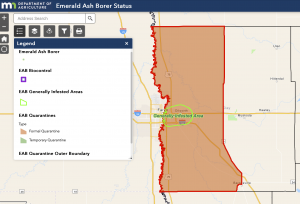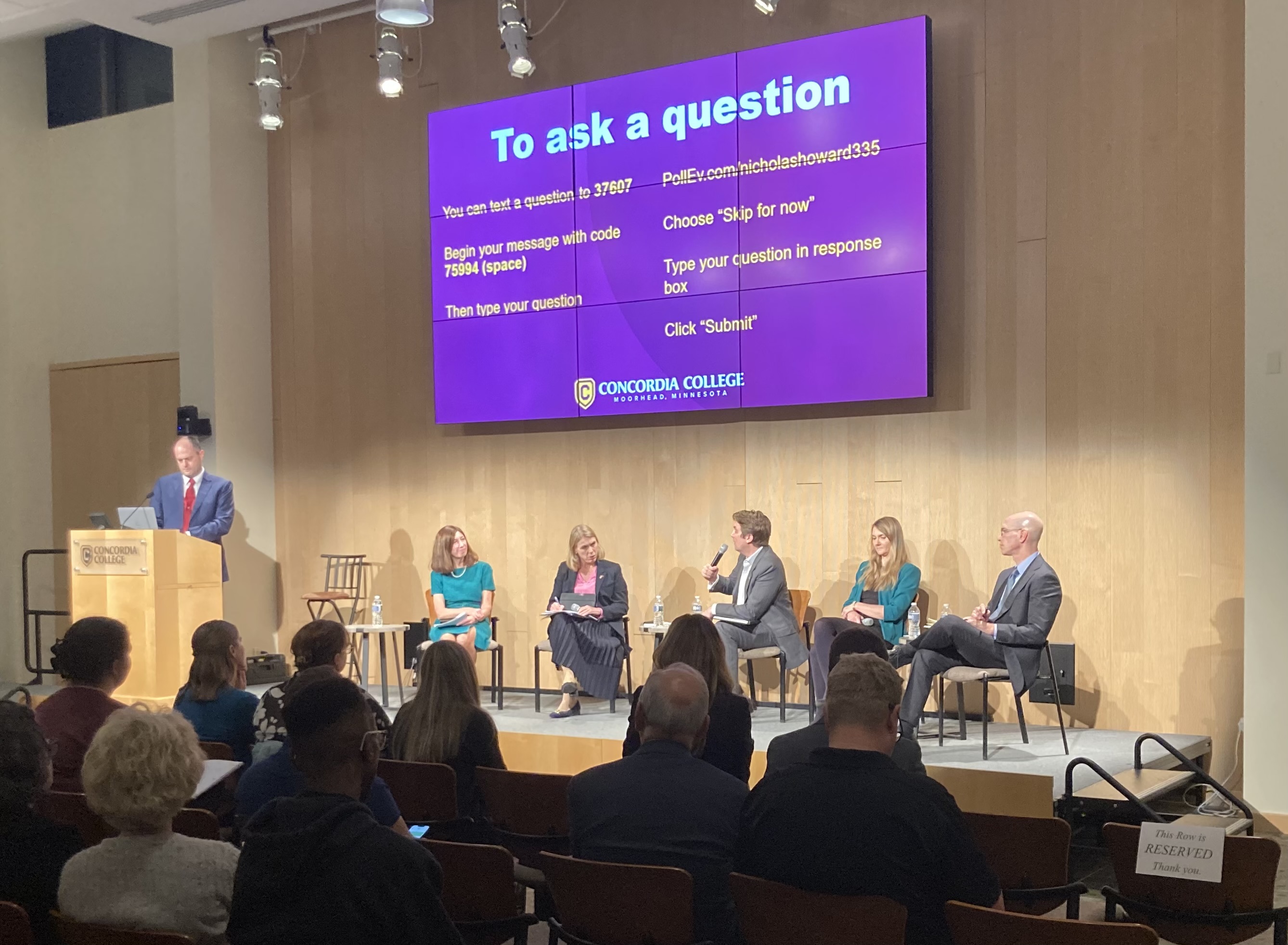By: Koral Tolifson
Based on national averages, women are getting paid less than men in the workforce. This wage gap arouses the potential to question whether tuition should be adjusted accordingly. If women are going into a career expecting to be paid less than the men in the same field, with the same credentials, then why should they be expected to pay the same amount for their education.
The wage gap is a serious gender discrimination issue that has been a recurring problem in the United States. Debra Fitzpatrick, one of the guest Symposium speakers at Concordia College, spoke regarding gender wage gap issues worldwide on Sept. 19, 2018. According to Fitzpatrick’s sources, employers are beginning to take initiative and accepting responsibility by addressing those being discriminated. However, not all employers are willing or able to change their systems yet. Since education is directly tied to future employment, the problem becomes cyclical. In order for real change to occur for women both in education and career, some believe education systems must initiate processes that address the gender pay gap inequity, such as tuition adjustments.
Fitzpatrick emphasized that two-thirds of student debt is held by women nationwide. The reason women hold more debt for their education compared to men is largely due to the wage differentiation between genders. While women typically acquire the same amount of student debt as men, they are unable to pay it off as easily due to the gender wage gap issue. Women’s earnings are less than men’s in nearly all occupations. “America’s Women and the Wage Gap Fact Sheet” shows the average comparison for wages today is women receiving 80 cents for every man’s dollar earned. It can be worse for women of different ethnicities and backgrounds.
Fitzpatrick also brought up a secrecy issue around salaries. In fact, Minnesota is one of a few states in the U.S. that allows employees to disclose information about their salaries with one another. When questioned, Hannah Ziemer, a case manager at a nonprofit homeless shelter in Fargo, ND with a degree in social work, responded that she was not aware if she was falling into a wage gap because it wasn’t something she and her coworkers had discussed. The norm is secrecy.
Dr. Anne Mocko, a female Concordia College professor, confirmed that the staff at Concordia’s institution have been impacted by the wage gap problem. Mocko explained that the reason she became aware of her wage gap was when Concordia College conducted a salary equity survey in 2003. The college conducted the survey in hopes to make salary adjustments to those who were impacted by a wage gap. She compared the results with colleagues in the same department, same position and same qualifications, and discovered that she needed a much larger salary adjustment than the men she compared with.
Mocko also explained that at the start of her career here at Concordia College, she went in to negotiate her salary, but was turned down due to “equity policies.” However, the colleagues she compared salary adjustments with explained that they were able to negotiate the terms of their contracts regarding salary at the start of their careers at the institution.
Dr. Eric Eliason, the current Dean of Concordia College and Vice President of Academic Affairs, explained that there are a lot of different factors to consider when looking at salary equity: for example, what does equivalent work look like and how would an institution like Concordia set a baseline to determine this? He explained that it can become complicated because there is always more than one explanation as to why someone’s wages differ from another’s and there is “no magic” that can exempt the college from this particular issue. Eliason confirmed that Concordia is currently taking action to reduce the problem.
“We know we have to monitor this because we care,” he said.
Eliason also provided a resourceful link that can help compare men’s and women’s wages at Concordia College: https://data.chronicle.com/173300/Concordia-College-at-Moorhead/faculty-salaries/. By opening this link, viewers are able to identify the pay difference between men and women at Concordia from the year 2003 until 2016. In the most recent year shown, there is a gap in men and women’s salaries that displayed an average difference of $2,000 for assistant professors and associate professors. In the same year, full professors experienced a $6,000 average wage difference between the men and women at Concordia College. Over time this pay differential can add up to thousands if not millions of dollars that women are losing not only through their salaried pay, but for retirement or social security purposes.









Be First to Comment